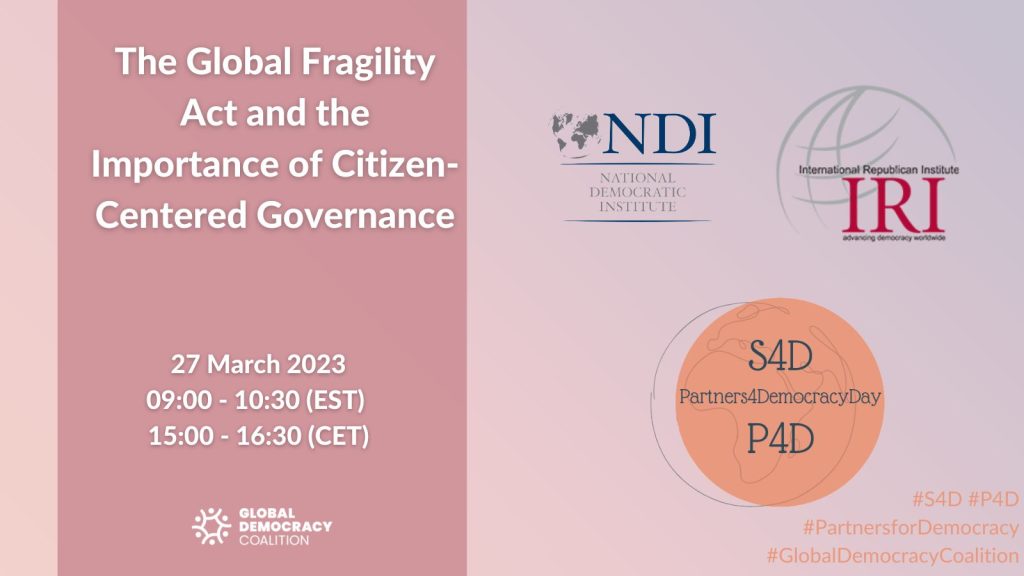
The Global Fragility Act and the Importance of Citizen-Centered Governance and Democracy
The Global Fragility Act (GFA) is an integral component of the US bi-partisan commitment for global democratic renewal. Central to achieving the GFA’s primary goals of violence prevention and post-conflict recovery is strengthening the relationship between citizens and their governments. Inclusive, citizen-responsive governance prevents violent conflict and is the ultimate determinant of post-conflict political and social transformation. This spring marks a critical milestone in GFA implementation, when State, USAID, and DoD will send implementation plans for GFA priority countries and region – Haiti, Libya, Mozambique, Papua New Guinea, and Littoral West Africa – to President Biden for signature.
Thr National Democratic Institute (NDI) and the International Republican Institute (IRI) hosted a two-part, co-sponsored panel on the Global Fragility Act on the sideline of the Summit for Democracy. The event explored the importance of democracy for the success of the GFA, and the importance of the GFA for global democratic renewal.
Opening remarks were delivered by Uzra Zeya, Under Secretary for Civilian Security, Democracy, and Human Rights and Robert Jenkins, Assistant to the Administrator for the Bureau for Conflict Prevention and Stabilization (CPS).
Panel one included a discussion among government officials on the commitments to democracy and violence prevention in GFA countries participating in the Summit for Democracy, including Cote d’Ivoire, Ghana, Mozambique, and Papua New Guinea. Panel two highlighted civil society perspectives on democratic progression and conflict prevention from a broader group of GFA countries.
